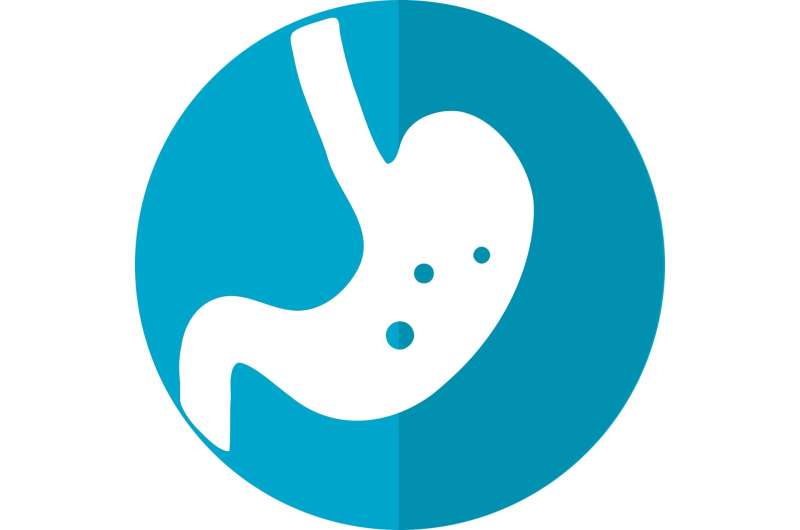This article has been reviewed according to Science X's editorial process and policies. Editors have highlighted the following attributes while ensuring the content's credibility:
fact-checked
proofread
Details of how the gut microbiota changes in the first months of life revealed by Italian study

Details of how the gut microbiota changes during the first three months of life will be presented at this year's European Congress of Clinical Microbiology & Infectious Diseases (ECCMID) in Copenhagen, Denmark (15-18 April).
From birth onwards, the intestinal tract is colonized by a multitude of bacteria, viruses, fungi and protozoa, collectively known as the gut microbiota. The composition of the gut microbiota grows and changes in the first few months and years of life and disruption to its development is associated with conditions in later life including asthma, inflammatory bowel disease and type 1 diabetes.
Researcher Professor Vincenzo Di Pilato, of the University of Genoa, Genoa, Italy, says, "Given that the development of the gut microbiota is fundamental to health later in life, it is vital to learn all we can about how this collection of microbes matures."
Professor Di Pilato and colleagues from the University of Florence and the San Jacopo Hospital in Pistoia are tracking how the gut microbiota changes in the first three years of life (CI.EMME study). The results from 0-3 months of age are being presented at ECCMID.
Stool samples were collected from 165 newborns at delivery (T0), after being discharged from hospital (T1, within 2-3 days of delivery) or at later stages in infants who required intensive care (T2), and at three months of age (T3) and stored until processing.
495 stool samples were collected and 370 processed and analyzed. (T0=71, T1=136, T2=13, T3=150).
Genetic profiling revealed a greater number of bacterial species (greater α-diversity) in samples collected at early (T0) than in those collected later (T1/T2 or T3), suggesting that the gut microbial ecosystem is evolving rapidly.
Some bacterial families exhibited marked changes in abundance over time. Those identified as having a time-dependent dominance include: Lactobacillaceae/Pseudomonadaceae (T0), Bacterioridaceae/Enterobacteriaceae/Enterococcaceae/Staphylococcaceae (T1) and Bifidobacteriaceae/Veillonellaceae/Lachnospiraceae (T3).
The analysis also found a higher proportion of Bifidobacteriaceae (at T0 and T3) in samples from infants born via cesarean section than those born via vaginal delivery.
Professor Di Pilato says, "It is well known that the delivery mode represents an important driver of the early gut microbiota diversity and that Bifidobacteria represent one of the dominant members of the core infant gut microbiota, although their abundance can exhibit substantial variations in the first months of life."
When the researchers looked to see whether factors including weight at birth, use of antibiotics or other drugs during pregnancy, breastfeeding and the time at which samples were collected were linked to bacterial diversity, the time of collection appeared to have the biggest influence—how old the infant was when their stool was sampled (that is, T0, T1, T3).
Professor Di Pilato concludes: "The microbial colonization of the gut environment takes place through distinct developmental stages and time appears the strongest modifying factor in early life.
"A better knowledge of how the gut microbiota develops from being nearly sterile at birth towards a diverse healthy ecosystem later in life would us to identify unhealthy, or dysbiotic, microbiota.
"We might then be able to 'correct' the bacterial imbalance and so increase the odds of good health later in life.
"More research is needed, however, to improve our understanding about how we can move from investigation to modulation of our microbiota and preserve health."
More information: Evaluation of transitional changes shaping the infants' gut microbiota in early life, European Congress of Clinical Microbiology & Infectious Diseases (ECCMID), 2023.




















